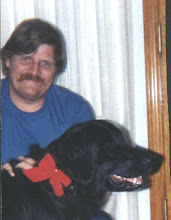Boeing Awarded DARPA Contract to Develop Ultra-Long-Endurance Aircraft Technologies
Boeing [NYSE: BA] has been awarded a $3.8 million Defense Advanced Research Projects Agency (DARPA) contract for Phase 1 of the Vulture air vehicle program, an effort to create a new category of ultra-long-endurance aircraft.
 DARPA's Vulture program calls for developing technologies and ultimately a vehicle that can deliver and maintain an airborne payload on station for an uninterrupted period of more than five years using a fixed-wing aircraft. Boeing is teaming with United Kingdom-based QinetiQ Ltd. for the program.
DARPA's Vulture program calls for developing technologies and ultimately a vehicle that can deliver and maintain an airborne payload on station for an uninterrupted period of more than five years using a fixed-wing aircraft. Boeing is teaming with United Kingdom-based QinetiQ Ltd. for the program.
The yearlong Phase 1 covers conceptual system definition, and formal reliability and mission success analysis, concluding with a System Requirements Review. It also requires conceptual designs for sub- and full-scale demonstrators.
"Boeing has worked closely with DARPA on a number of innovative programs in the past and we welcome this important opportunity to again team with them to define a new air vehicle system with unprecedented reliability and endurance that significantly extends current aircraft and spacecraft capabilities," said Pat O'Neil, program manager, Boeing High Altitude Long Endurance Systems. "We will combine our strengths in highly reliable aerospace systems development with the unique capabilities of our teammates, QinetiQ, Versa Power Systems and Draper Laboratory."
QinetiQ is currently flying and testing a solar-powered, high-altitude, long-endurance unmanned aerial system for the U.K. Ministry of Defense and the U.S. Department of Defense under the Zephyr Joint Capabilities Technology Demonstration. QinetiQ's role will be to leverage the technologies developed and demonstrated in Zephyr for the DARPA Vulture program.
The Vulture vehicle's goal is to be capable of carrying a 1,000-pound, 5-kilowatt payload and have a 99 percent probability of maintaining its on-station position.
Link
No comments:
Post a Comment